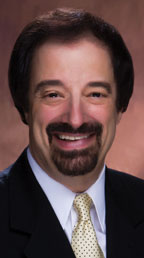
 Do Civil Rights lawyers ever retire?
Do Civil Rights lawyers ever retire?
Anyone thniking of retiring in Florida should be forewarned: Florida has more than its share of civil rights challenges.
Bush v. Gore. Eight-hour lines to vote. A quarter of Black voters disenfranchised. Stand Your Ground. Trayvon Martin killed. Racial profiling. 40-student classrooms. Black exclusion from tourism, high tech and agribusiness.
On the front lines fighting is the Florida NAACP and its branches covering all 67 Florida counties. It is headed by lifelong movement veterans – President Adora Obi Nweze, Criminal Justice Chair Dale Landry, Political Action Chair Cynthia Slater, Youth Chair Sannye Jones, and dozens more who are giving their lives to the struggle.
For 106 years the NAACP has been universally revered for its stellar legal advocacy, and in 2014 the Florida State Conference won the National NAACP’s award for the best state conference legal redress program. What’s most remarkable is that the Florida NAACP achieved this honor entirely with volunteers – 22 of them. They are law firm partners and associates, sole practitioners, and law professors. They take on almost every racial in-justice that happens to Black people.
Leading the team is another volunteer, David Honig, a Florida civil rights warhorse if there ever was one. Honig commutes once or twice a week to his day job in Washington, D.C., where he is President Emeritus and General Counsel of the Multicultural Media, Telecom and Internet Council (MMTC). Honig founded MMTC in 1986 and ran it for 29 years; recently former National NAACP General Counsel Kim Keenan succeeded Honig as MMTC’s President and CEO.
Over the past two generations, Honig essentially invented the practice of civil rights advocacy in the broadcast, cable, and telecommunications industries, which cover 1/6 of the economy. His legacy includes FCC rules against employment, transactional and advertising discrimination, a television news industry that almost looks like America, and a host of FCC initiatives to close the high tech “digital divide” that leaves African Americans without affordable access to the digital tools everyone needs to be a full participant in society. Honig coined the term that describes MMTC’s goal: “universal first class digital citizenship.”
In 1986, Honig brought the first “environmental racism” suit, which resulted in a toxic waste dump in a Black neighborhood being moved to an uninhabited area. Thus it’s not surprising that to stay active in his semi-retirement, Honig decided to create a new energy industry civil rights advocacy resource group to help protect the interests of the poor. No such group exists, and it’s much needed. Federal and state energy subsidies helping the poor have been slashed – low income energy assistance (LIHEAP) that helps low income families keep their electricity and heat on, and weatherization programs that helps the poor insulate their older, more “porous” homes. The energy industry is enormous, yet African Americans are barely included in ownership, management and procurement both on the fossil fuel side (coal, oil, gas) and the renewables side (solar, wind and hydroelectric).
Honig vows to change all of this – and he’s so serious about it that he personally created and seeded the new group that will take this on, the Energy Equity Alliance (EEA), headed by former Florida state legislator Joe Gibbons. EEA will take on environmental racism – the practice of locating high pollution facilities in or adjacent to communities of color. And EEA will support the rapid adoption of cleaner energy, such as community and rooftop solar – but priced in a way that protects low-income consumers and doesn’t shift grid maintenance costs to low and middle-income households. In this way EEA will be both green and progressive.
At 65, with 50 years of civil rights advocacy behind him, Honig easily could decide to slow down and do what non-Floridians think people retire to Florida to do – sit on the beach, play shuffleboard, and get sedentary. Career civil rights lawyers don’t do those things. They stay in the struggle for life.


Be the first to comment